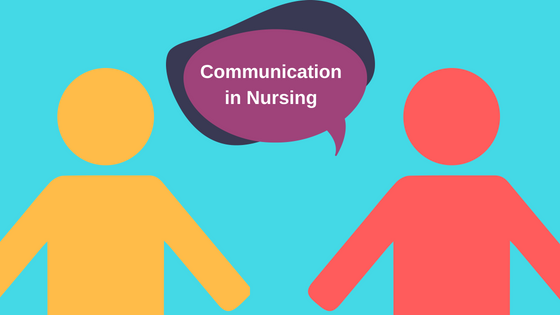 Communication in Nursing is essential to patient safety, health and well-being. As Nurses assume more complex roles and care for older and more culturally diverse populations, strong communication skills are critical.
Communication in Nursing is essential to patient safety, health and well-being. As Nurses assume more complex roles and care for older and more culturally diverse populations, strong communication skills are critical.
“According to one study, effective communication reduces stress, promotes wellness and therefore improves the overall quality of life of patients. Below are some tips to help improve communication.”
BATHE (Background, Affect, Trouble, Handling, and Empathy)
Nurses and other healthcare experts have been looking for the key to a quality patient encounter that also fits within busy workflows. At the University of Virginia, researcher Claudia Allen, JD, PhD, developed the Background, Affect, Trouble, Handling, and Empathy (BATHE) method, designed to only take five minutes.
BATHE uses open-ended conversations between patients and nurses to build strong relationships that can often go beyond clinical needs. Understanding who the patient is as a person helps the nurse connect with the patient and make her feel more comfortable during a potentially tumultuous care encounter. To learn more about BATHE click here.
Breaking Barriers for Effective Communication
Some health care organizations may still foster a culture that discourages employees from reporting negative events. From an ethical viewpoint, patient safety takes precedence over loyalty to peers and superiors, especially when those individuals are not conforming to safety procedures.
As a step in promoting a culture of open communication, nurse professionals must display fortitude in reporting unsafe conditions and adverse events. In the modern caregiving environment, it is no longer acceptable to blindly follow instructions. Silence can lead to negative treatment outcomes, or worse – to a mortal event.
Active Listening
Active listening is an essential holistic healthcare tool. It is a non-intrusive way of sharing a patient’s thoughts and feelings. To practice active listening, follow these steps:
- Listen to what the patient is saying.
- Repeat what you heard to the patient.
- Check with the patient to ensure your reflection is correct.
The goal of active listening is to reflect the feeling or intent behind their words. You should listen to understand, not to respond. Practice active listening as one of several ways to build rapport.
If there seems to be a disconnect, reflect what has been said by paraphrasing. "What I'm hearing is…," or "Sounds like you are saying…," are great ways to reflect back. Don’t simply repeat what the speaker has said verbatim, though—you’ll sound insincere or unintelligent. Instead, express what the speaker’s words mean to you. Ask questions to clarify certain points: "What do you mean when you say..." or "Is this what you mean?"
Humor
Humor in health care is often described as a complimentary treatment. It has been seen to enhance care relationships, coping and healing while reducing anxiety, lowering blood pressure and releasing endorphins.
Humor can also be a great way for you to cope and perform in unpleasant and challenging situations. For many, humor can help put an experience or expectation into perspective and make it easier to move forward and or manage.
Remember to not use negative humor, and to be respectful of other cultures and how humor may be perceived.
Body Language
One of the most important factors in communicating with others is our nonverbal communication. We are aware and in control of the words that we speak, but often the nonverbal cues we send may go unnoticed. According to an article by Amy Lucas on Livestrong.com, “We can reinforce, contradict, substitute, complement, or emphasize our verbal communication with non-verbal cues such as gestures, expressions and vocal inflection.” Nonverbal cues are so strong because they communicate to others on a subconscious level, causing individuals to regard nonverbal communication as “true” communication because it provides real cues and emotions. When verbal language and body language are congruent, this works to enhance the overall quality of the message and allow it to resonate with the individual receiving the message.
Do you have any tips you would like to share? Please comment below. We would love to hear what you have to say!






